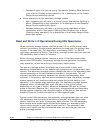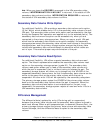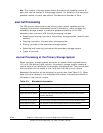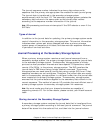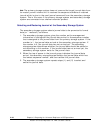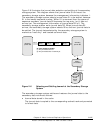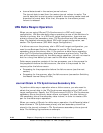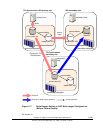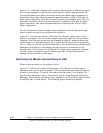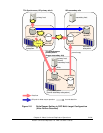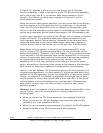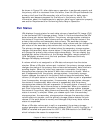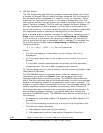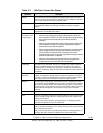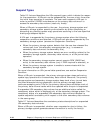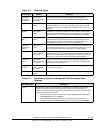
2-30 Chapter 3 Preparing for Universal Replicator z/OS Operations
Hitachi Universal Replicator for IBM /OS User’s Guide
Figure 2-7, a URz pair created with the delta resync option is defined as a pair
but no copy operation is performed (Hold status). Actual copy operation will
not be performed until when the failure occurs and delta resync operation is
performed. Note that there are several requirements to create a URz pair for
delta resync operation, such as you need to specify the unused mirror ID. For
detailed information about the requirements of creating a URz pair for delta
resync operation, see section
Requirements for Creating URz Pair for Delta
Resync Operation.
For the information about the delta resync operation that will be performed
when a failure occurs in the configuration shown in
Figure 2-7, see the next section. Note that the URz pair need to be in Hold
status if you want to form the delta resync operation when the failure occurs.
However, the URz pair status may be changed to Hlde for example when the
cache memory or shared memory error occurs in TCz Synchronous secondary
site, or when no journal cannot be obtained in TCz Synchronous secondary site
because of the failure in the master journal volume or occurrence of the
pinned track. If the status of the URz pair for delta resync operation changes
to Hlde, follow the steps in section
Restoring a Pair of Data Volumes and
change the pair status to Hold again.
Switching the Master Journal Group of URz
When a failure occurs on the primary site in
Figure 2-7 (3DC multi-target configuration), the URz pair for delta resync
operation can use the journal group in TCz Synchronous secondary site as the
master journal group. To switch the master journal group, first change TCz
Synchronous secondary site to the primary site by using Business Continuity
Manager, then perform the delta resync operation on the primary data volume
of the URz pair in Hold status. The following figure shows an example.



